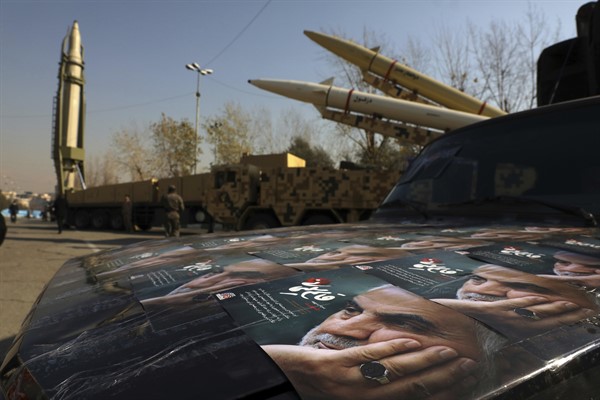A dozen ballistic missiles struck Iraq’s northern city of Erbil on Sunday, with some reports suggesting that several landed near the U.S. consulate building in the city. The missile attack left residents of the city terrified, with many posting videos online showing several large explosions and some saying that the blasts shook their homes. Amid speculation of Iranian involvement, the country’s Islamic Revolutionary Guards Corps quickly claimed responsibility for the missile strike.
This latest round of what some observers describe as Iran’s “messaging by missile” marks a dangerous escalation in the Middle East. Iran has built up a long track record of aerial attacks, either directly by its military forces or via regional proxies, that appear to be tied to Tehran’s strategic aims in the region. Sunday morning’s attack, for example, occurred just as negotiations between Tehran, Washington and its European allies over reviving the Iran nuclear agreement appear to have hit a dead end, apparently due to Russian demands that would soften the blow of Western sanctions on Moscow over the Ukraine invasion.
In the aftermath of the missile attacks, much analysis has focused on the message or signal that Iran might be communicating through this strike. But this sort of “negotiation through military strikes,” as embodied by Sunday’s attacks, further raises the risk of a wider war in the Persian Gulf. It has become all too common in the Middle East to see regional and outside powers conducting lethal, remote strikes on other countries’ sovereign territory. And while not all of these attacks are equivalent, it’s nonetheless important to place Iran’s potentially escalatory missile strikes in Erbil on Sunday in a broader regional and historical context.

